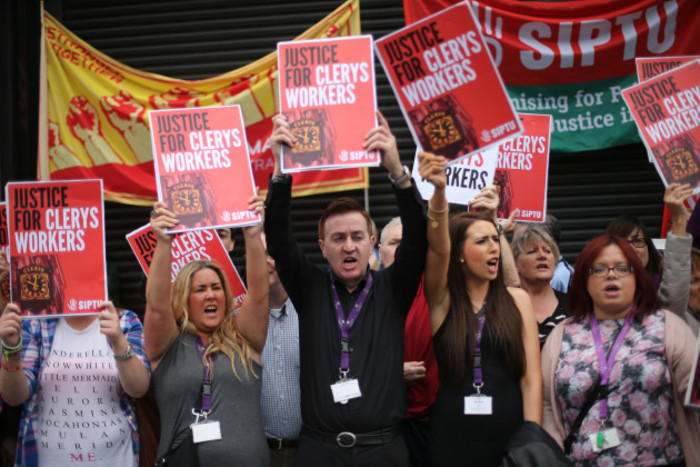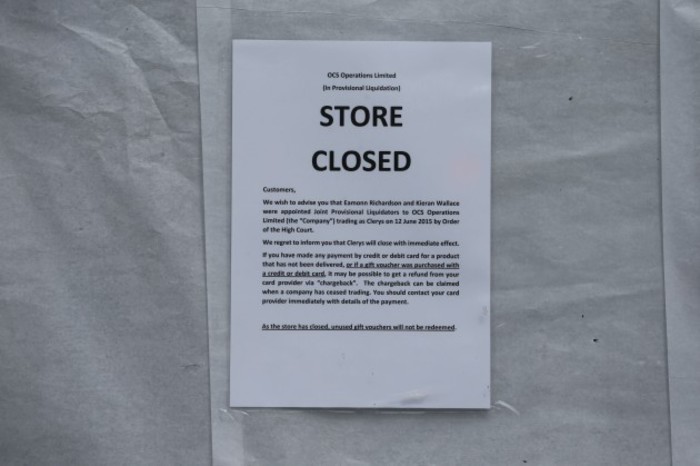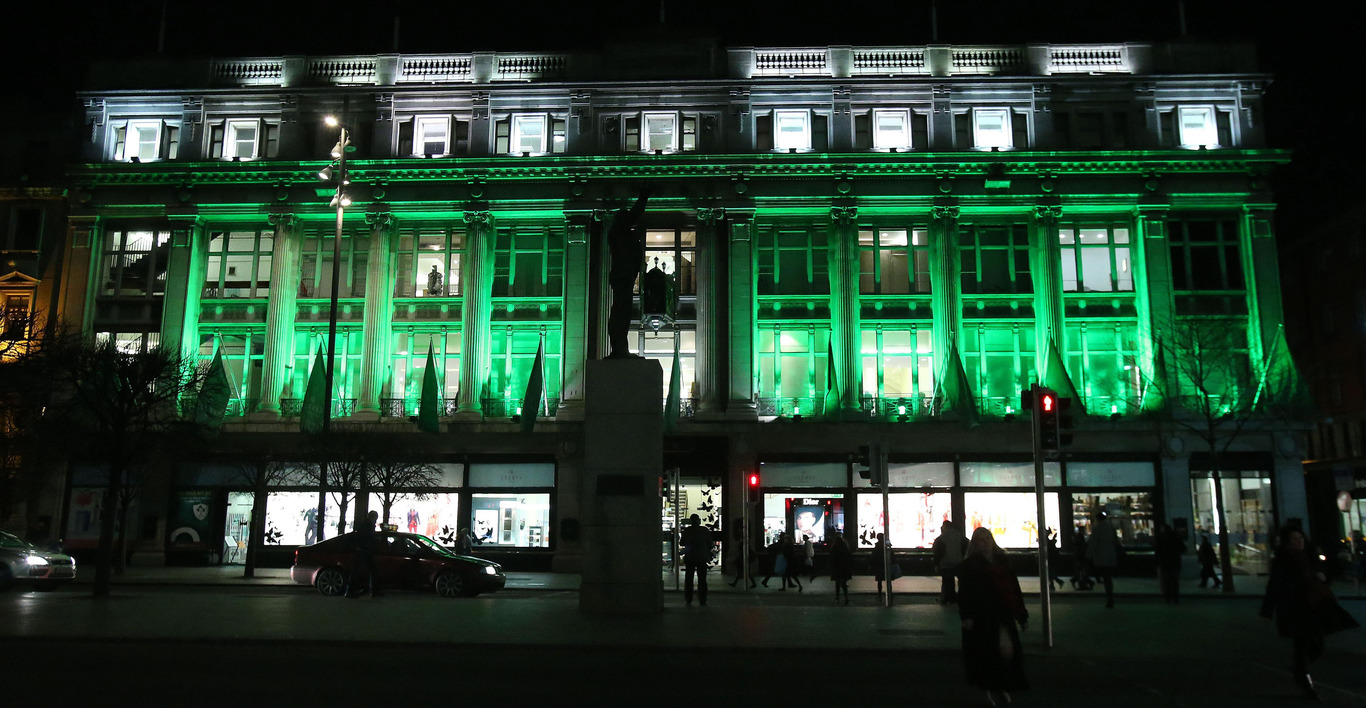Clery's buyer is suing investigators over a probe into the store's closure
D2 Private and its owner, Deidre Foley, have launched a High Court case against workplace officials.
A HIGH COURT challenge has been brought against powers being used by inspectors conducting an investigation into the collective redundancies of workers at the iconic Clery’s Department Store.
The inspectors were appointed by the Workplace Relations Commission following the Dublin store’s closure in June 2015, shortly after its sale by its previous owners, the Gordon Brothers Group, to Natrium Ltd.
Natrium is a joint venture made up of Irish investment group D2 Private Ltd and Cheyne Capital Management in the UK. Approximately 460 people either directly employed by Clery’s or by various concession holders in the store lost their jobs.
D2 Private and its director and owner Deidre Foley have brought proceedings after the inspectors, along with members of An Garda Síochána, entered the firm’s offices at Harcourt Terrace in Dublin yesterday.
Justice Anthony Hunt heard that as part of their investigation, the two inspectors rely on certain legal provisions that include powers to enter premises and seize documents.
After entering D2 Private’s offices the inspectors demanded to be furnished with a laptop belonging to a company employee and certain books and records. The laptop was taken by the inspectors, the court heard.
The documents include correspondence the company had with parties including the liquidators and directors of the company that had operated Clery’s – OCS Operations, before Natrium acquired the store.

No powers
In their action, Foley and D2 Private reject the inspector’s assertions they have the power to enter onto their premises or to lawfully take the computer or the materials sought.
In their action against the commission and the inspectors, Foley and D2 Private seek an order quashing the requirement made on them to hand over materials.
They also seek a declaration from the court that the use of the investigatory powers allowing the inspectors and the commission to obtain access to D2 Private’s premises and obtain documents and other materials is unlawful and outside of their remit.
Barrister Breffni Gordon for the Minister for Jobs, Enterprise and Innovation, which has responsibility for the commission, said his client opposes the application.
He said the investigation was being conducted to see if a criminal prosecution should be brought arising out of the workers’ collective redundancy.

Not relevant
Seeking permission to bring the challenge, barrister Eoin McCullough SC, for Foley and D2 Private, said the case was essential about the statutory interpretation of the Acts in question.
He said the inspectors were acting under powers contained in the act which they say allows them to enter any premises where there are employees.
Counsel said it is their case this cannot be so and that the inspectors can only enter premises and take documents from premises relevant to their investigation.
Foley and D2 Private were never the employers of and had no connection with the Clery’s workers. The documents sought and the materials on the computer are outside the remit of the investigation and there was no valid basis for taking them, counsel said.
Counsel added there were concerns about commercially sensitive information contained on the seized laptop. It was their case the inspectors were not entitled to take it and they are seeking orders to have the laptop returned.
Justice Hunt adjourned the case to Monday. Noting the importance of the action and the serious consequences for the parties involved, the judge said it was best the application be heard as soon as possible.
The judge accepted an undertaking that the laptop taken by the inspectors would be kept by a solicitor for the department and not interfered with pending further order by the court.
The judge also granted an injunction preventing any party from making any use of any material that has been downloaded from the laptop.
A government report into the Clery’s closure released last month said the property and company deals that lead up to the mass redundancies “may have been lawful, (but) it is difficult to avoid the conclusion that it would be preferable if it were not”.
It made several recommendations for legal changes that could be introduced to protect employees in similar situations.
Additional reporting Peter Bodkin






